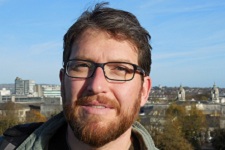Trends and Developments
Studies of a new ecology of companies, financiers, government agencies and universities concerned with nanotechnology, life sciences, pharmaceutical and information technologies are under way (Slaughter and Rhoades, 2004). A few ethnographies are beginning to explore researchers’ own ways of handling this environment (Hansen 2011). However, studies to date tend to draw upon one discipline, on the one hand, and limit their focus to the few star disciplines, on the other. Our preliminary investigations indicate that the new industrial complex around universities is much more complicated than reported to date – involving a range of actors often not visible on first glance. These include firms brokering student mobility, think tanks, incubators which sit on university campuses and science parks, publishing firms who have become active in developing auditing, citation and ranking technologies, firms conducting student satisfaction surveys, or who provide bespoke packages for institutions aimed at developing creative individuals, cities and regions.
From the other direction, universities are being asked to account for the significant investments of public funds within the sector. They are encouraged to be more outward facing toward their publics and to explore new ways of sharing knowledge beyond the rather narrow channels of knowledge dissemination. New digital technologies are increasingly being harnessed for these purposes and promise significantly to transform how and to whom knowledge is being distributed. Similarly, academics are responding to the changing environment by creating new roles as academic entrepreneurs engaged in developing start up firms and patenting ideas.
Mapping the field of higher education industries and choosing case studies

Name: Janja Komljenovič
Summary: The main aim of the research project is to look into ‘higher education resectoralisation’ generally and map higher education industries specifically by using multi-scalar analytic. The research project will find new cases and scales that are used to progress higher education projects and look into different regionalisms by developing regional mappings/typologies of higher education industries.
The Global Ranking of Universities: the industry of rankings and the rise of audit culture in higher education

Name: Miguel Lim
Summary: This research project aims to map the relationships within the field of the ranking industry and examine these relationships more deeply. It also aims to discuss the social dynamics of rankings and their effects in the field of higher education.
Think tanks and academic entrepreneurs in the production of knowledge

Name: Tatyana Bajenova
Summary: This project aims to show the complex and multi-scalar processes of think tank operation in Europe and to analyse the strategies which European think tanks employ to influence the policy-making process on the European level relying on the different resources they have at their disposal. This project aims to show the complex and multi-scalar processes of think tank operation in Europe and to analyse the strategies which European think tanks employ to influence the policy-making process on the European level relying on the different resources they have at their disposal.
New landscapes of publishing and knowledge dissemination

Name: Christopher Muellerleile
Summary: The objective of this project is to generate an account of new forms of publishing and knowledge dissemination in higher education (actors, activities, histories, interests, effects), and to examine the consequences for dissemination and impact.
Beyond the “Third Mission”: a grounded theory approach to universities’ involvement with the society

Name: Jana Bacevic
Summary: The objective of this project is to move beyond the uncritical import of the politicized concepts of the social role of higher education (and knowledge in general), variously described as the “social outcomes of learning” (e.g. OECD 2007), the contribution of higher education to a “democratic culture” (e.g. Council of Europe 2008), or, most generally, as the “third” mission of universities (in relation to the “first” and “second”, respectively teaching and research).